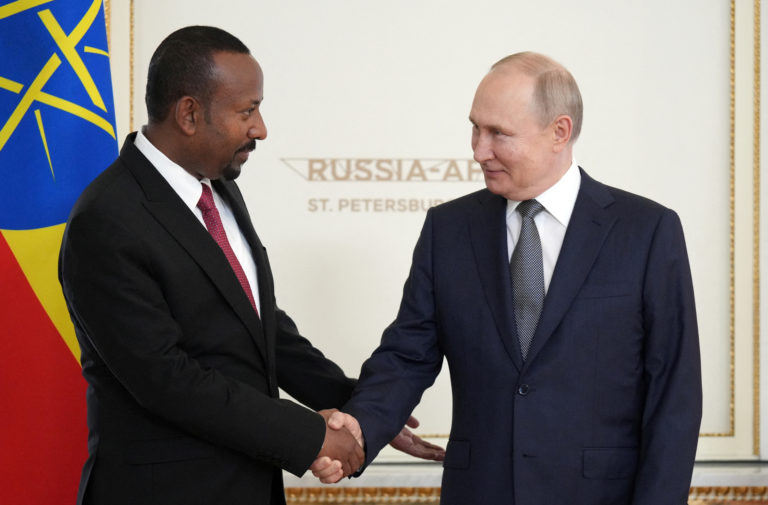Putin has billed the two-day summit that opens in St. Petersburg on Thursday as a major event that would help bolster ties with a continent of 1.3 billion people that is increasingly assertive on the global stage. It’s the second Russia-Africa summit since 2019.
The number of heads of states attending the summit has shrunk from 43 to 17 because of what the Kremlin described as Western pressure to discourage African nations from attending it.
Some African leaders arrived in Russia on Wednesday for a summit with President Vladimir Putin as the Kremlin seeks more allies amid the fighting in Ukraine.
Putin has billed the two-day summit that opens Thursday in St. Petersburg as a major event that would help bolster ties with a continent of 1.3 billion people that is increasingly assertive on the global stage.
On Wednesday, Putin held one-on-one talks with Ethiopia’s Prime Minister Abiy Ahmed, and said Russia will more than triple the number of Ethiopian students it hosts and cover their education costs.
Ethiopia’s government has been under pressure from the U.S. and the World Food Program after they made the extraordinary decision to suspend food aid to the country earlier this year following the discovery of massive theft of aid. They seek reforms that involve the government giving up controls over aid distribution. Meanwhile, watchdogs say hunger is rising in areas like the Tigray region that is recovering from two years of conflict.
Read More: Dreams Talks, Empowering Nigerien Youths through Edtech –Hub Zinder
Africa’s 54 nations make up the largest voting bloc at the United Nations and have been more divided than any other region on General Assembly resolutions criticizing Russia’s actions in Ukraine.
It’s the second Russia-Africa summit since 2019. The number of heads of states attending shrank from 43 then to 17 now because of what the Kremlin described as a crude Western pressure to discourage African nations from taking part.
